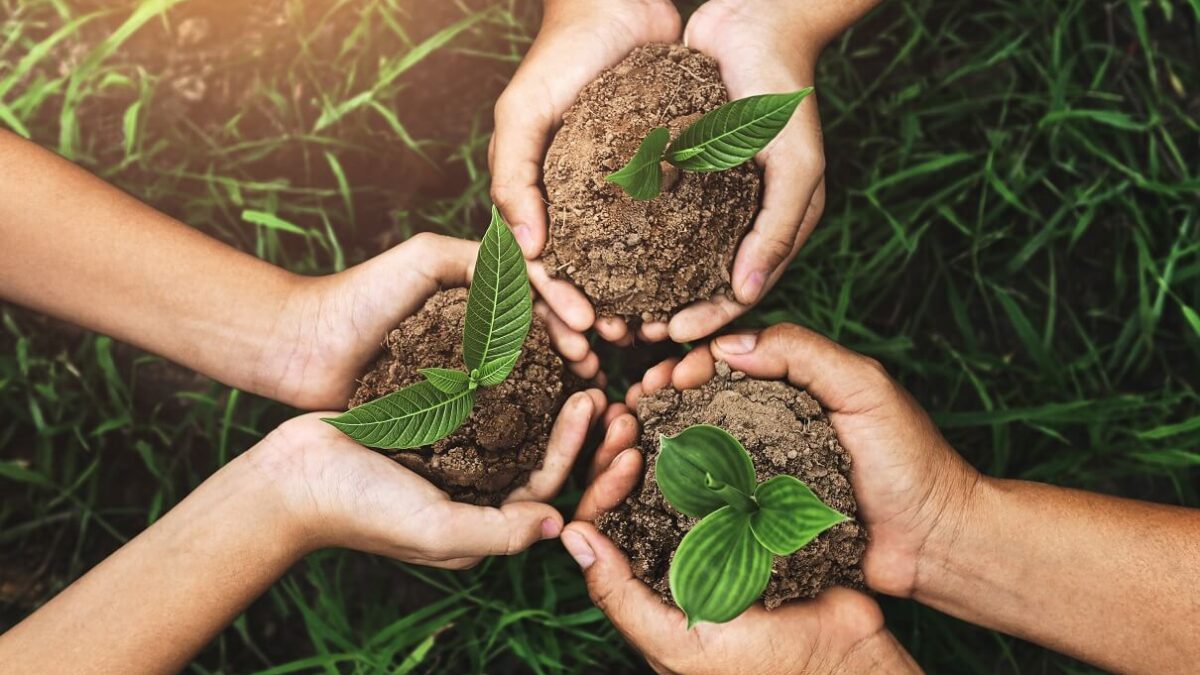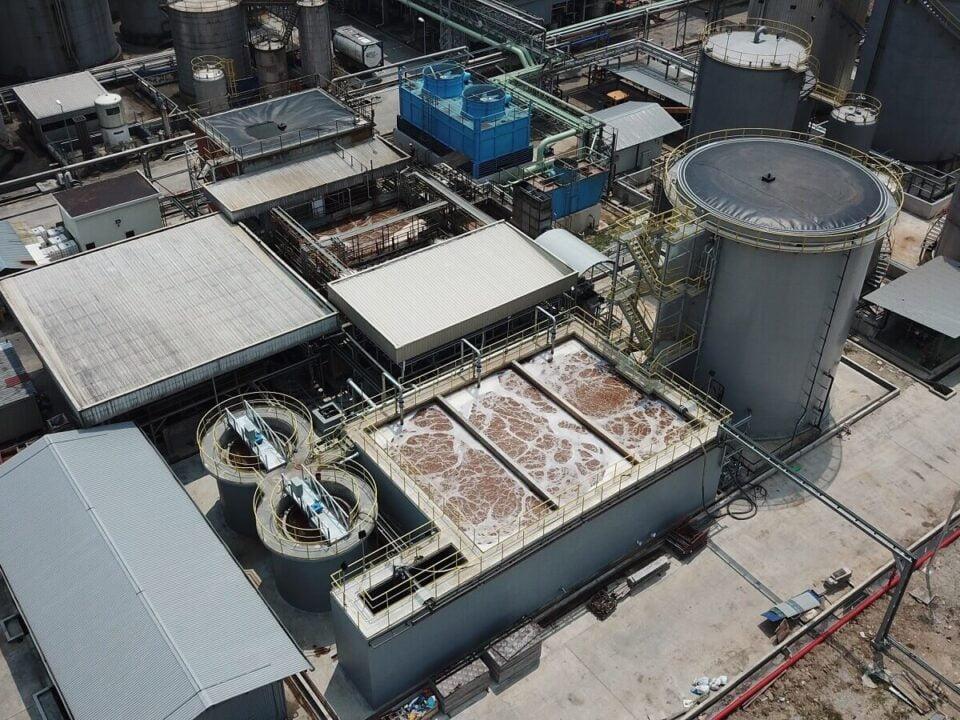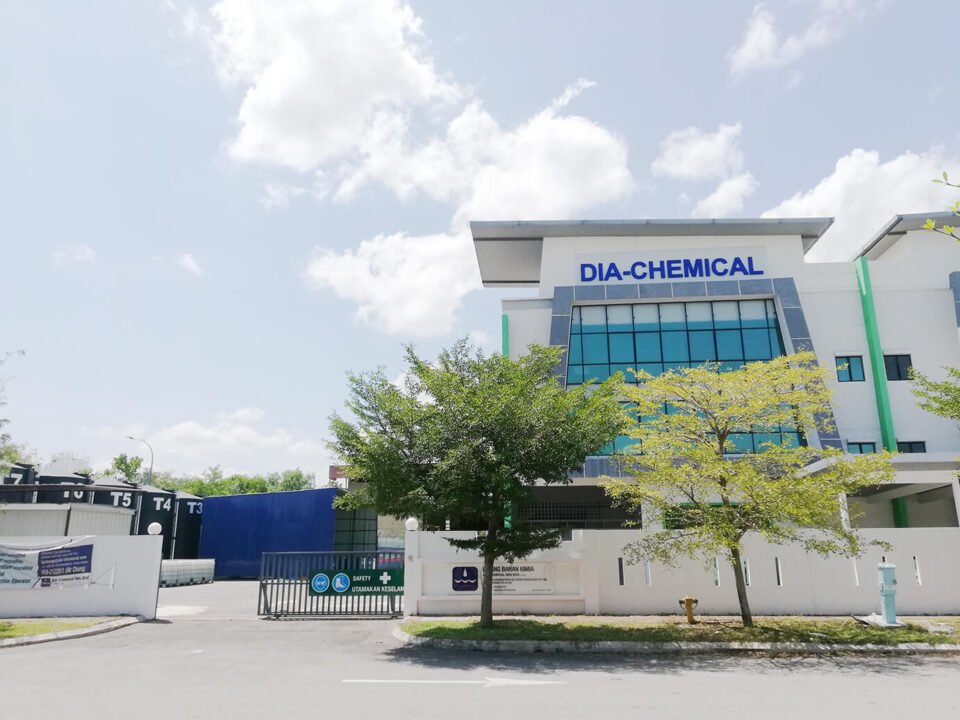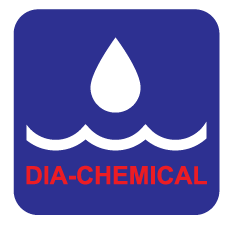Biogas Industry in Malaysia

Aluminium Chlorohydrate in Water Treatment
January 25, 2023The global consumption produces tonnes of organic waste every year. These organic wastes, when untreated properly, generate large amounts of methane as they decompose. Methane is a potent greenhouse gas that traps heat in the atmosphere. It can absorb 86 times as much heat in 20 years compared to carbon dioxide. To reduce greenhouse gas emissions, organic waste can be removed and used to produce biogas.
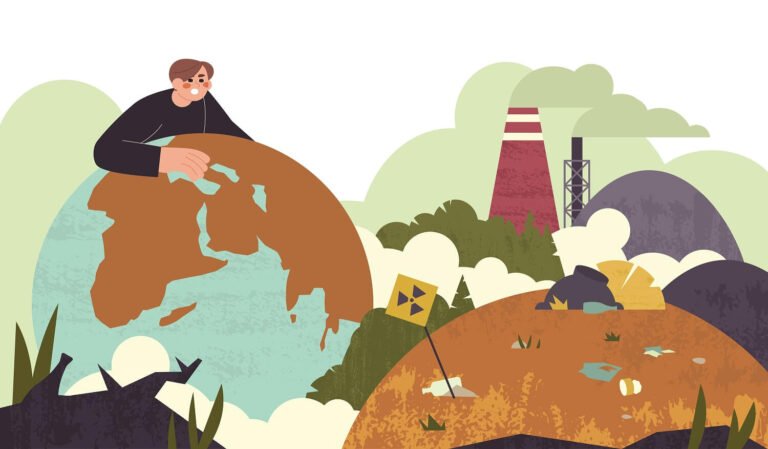
What is Biogas?
Biogas is a type of renewable energy source that is environmentally-friendly. It is a mixture of gases, with carbon dioxide and methane being the majority of the gaseous components. The gas is produced when organic matter is being broken down by microbes without oxygen; a process called anaerobic digestion. The organic matter could be derived from agricultural waste, animal waste, food waste, municipal waste and sewage.
Biogas is an environmental-friendly energy source because it helps lessen major environmental problems, which are:-
- The dangerous level of methane gas produced from global waste
- The reliance of fossil fuel energy
What are the uses of biogas?
- Biogas can be converted for use in electricity.
- Compressed biogas can be used to fuel vehicle.
- Biomethane from upgraded biogas can be used for cooking and heating.
Biogas Industry in Malaysia
Since 2016, the Malaysia’s biogas sector has been driven primarily by the palm oil industry. Malaysia generates the majority of its biomethane from palm oil mill effluent (POME), being the second-largest producer of oil palm in the world. POME, a waste product from the extraction of palm oil, is widely used as a feedstock for the synthesis of biomethane. There are a lot of agricultural residues and wastes produced by agricultural crops in Malaysia. However, only 27% of them are converted into fuel or useful goods.
As part of the National Transformation Programme, Key Economic Area, and introduction of Feed In Tariffs (FIT) for electricity generation, the biogas industry has received considerable positive feedback. The Malaysian biogas industry experienced its largest growth in activity in 2017. 30 biogas FIT projects with an installed capacity of 55.83 MW had reached commercial operations by 2017, as compared to 18 biogas plants with a combined capacity of 30.89 MW in 2016. In 2018, 11.71 MW of installed capacity were added.
However, there is still much to be done for the utilisation of agricultural, municipal, and industrial organic waste. Although the industry’s expansion is being constrained by inadequate backing, there is growing interest and investment from the private sector and the government. This was shown when the electricity produced by FIT-eligible projects in Malaysia from 2012 demonstrates a 400% increase in the biogas industry since 2014.
Key Drivers of Biogas Industry Expansion in Malaysia
- National Key Economic Area
One of the nation’s 2020 goals of becoming a high-income country is the construction of biogas facilities at palm oil mills throughout the country. Only mills with a biogas plant or plans to build one are currently permitted to renew their licences.
- Feed in tariff
The feed in tariff, which was introduced in 2011, is open to producers of renewable energy, including biogas made from landfill and agricultural waste. The government guarantees a price for biogas-based electricity feed into the grid, with additional incentives for improved energy efficiency, the use of locally made or assembled technology, and the use of landfill. The feed in tariffs is funded by a 1.6% levy on power bills and are in effect for 16 years from the date of implementation.
- Tax benefits
Renewable energy producers are eligible for a number of tax incentives, including exemptions from income tax, investment tax deductions, and import and sales tax exemptions.
- Financial support
Financial support that are available includes Green Technology Financing Scheme, Domestic
Investment Strategic Fund and other technology acquisition grants
- International Policies
Malaysia ratified the Paris Agreement and is committed to reduce its greenhouse gas emission by 45% by 2030 under its Intended Nationally Determined Contribution (INDC)
Where Dia-Chemical Stands in the Biogas Sector
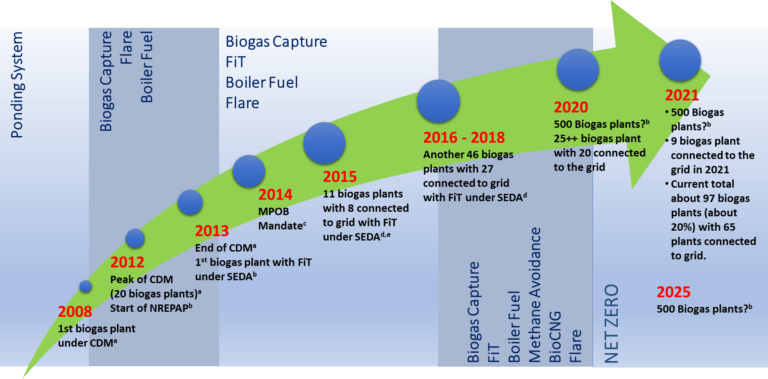
Dia-Chemical Sdn Bhd has been an avid supporter for the sustainable process of organic waste treatment, including biogas production using palm oil mill effluent (POME). The company is one of the key players in palm oil expertise by providing options, strategies and input in technological readiness in palm oil processing that will gear towards net zero carbon emissions. Professor Ir. Dr. Chong Mei Fong, the managing director of Dia-Chemical Sdn Bhd understood the challenges of biogas development for POME treatment in Malaysia. She highlighted that all initiatives done by the government should have an overarching policy (macro approach) allowing an active balance of demand and supply to make an impact.
Dia-Chemical Sdn Bhd strives to make an impact not only to the industry, but to the environment and the future generation as well. To learn more about the sustainability approach by Dia-Chemical, contact us here.

